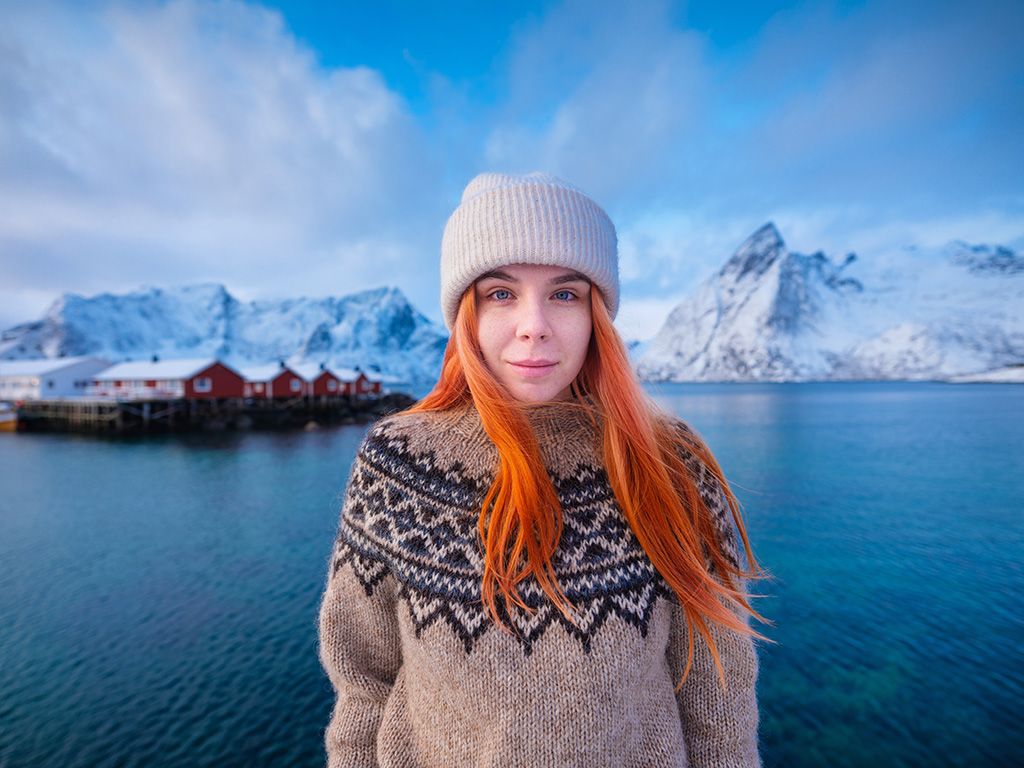Let's take a whirlwind tour through Iceland, a place where the unexpected happens everyday. Picture a land where you can watch volcanoes do their thing one day and chill under the Northern Lights the next.
It's not just the dramatic landscapes that make Iceland cool, it's also about how they're leading the charge with renewable energy and keeping their Viking heritage alive and well. This guide dives into 40 quirky, awe-inspiring things about Iceland, from its green summers and geothermal-powered everything to traditions that might just make you do a double-take.
So, if you're up for exploring a country that's as fascinating culturally as it is beautiful, let's uncover what makes Iceland a standout destination unlike any other.
Geological Wonderland
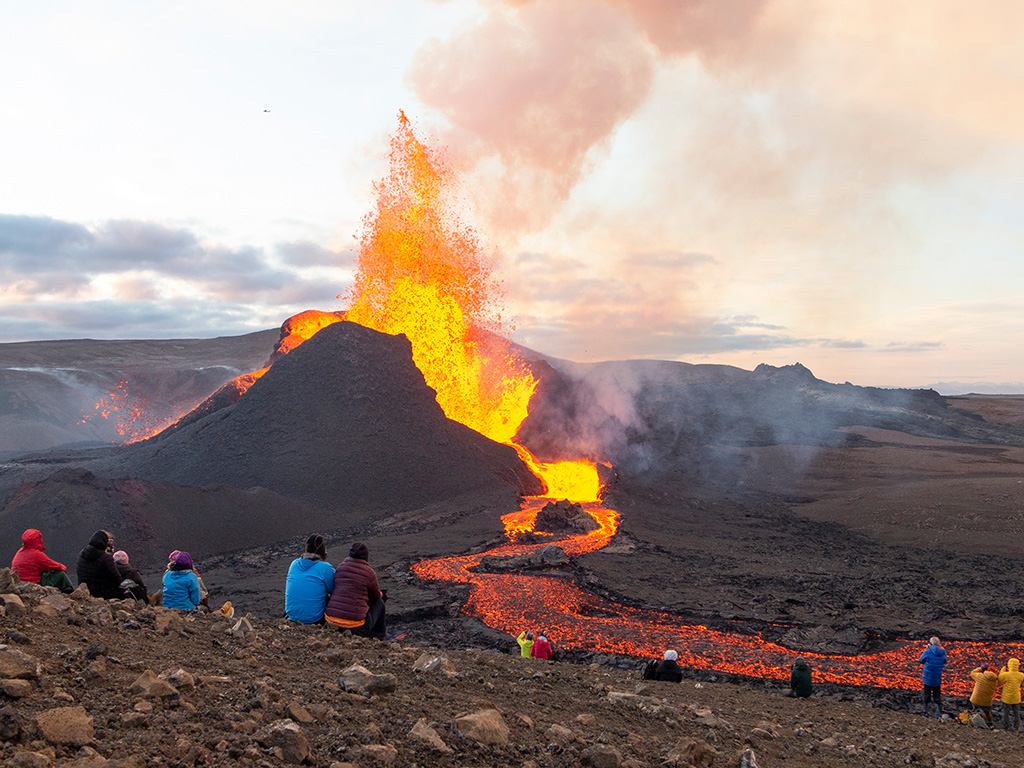
Iceland's known for its many volcanoes. They erupt about every 4 to 5 years, constantly altering the landscape. This shows just how powerful nature can be.
It's why Iceland looks so unique compared to other places. The frequent eruptions are like a fiery reminder of Earth's strength, shaping Iceland's breathtaking scenery in ways that constantly surprise and inspire.
Land of Ice and Fire
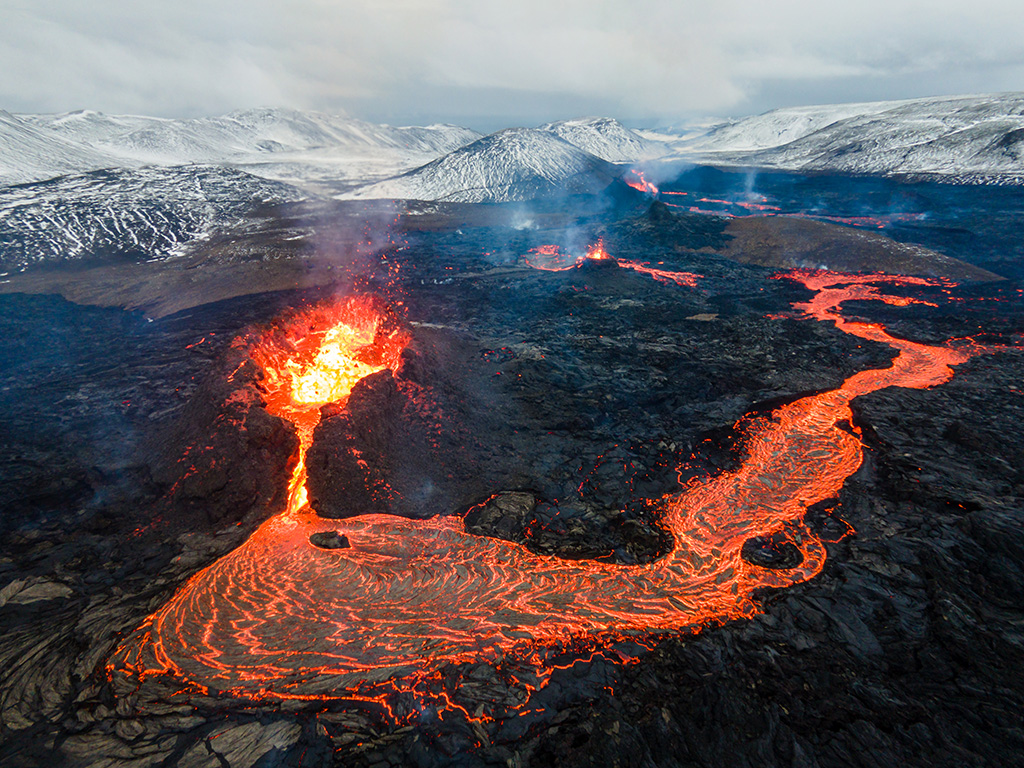
Iceland earns its moniker "Land of Ice and Fire" for its glaciers and active volcanoes. This striking mix of frozen landscapes and fiery eruptions defines its unique allure.
The contrast showcases nature's dynamic forces at work, sculpting Iceland's breathtaking scenery and creating an unforgettable destination for adventurers and nature enthusiasts alike.
Northern Lights
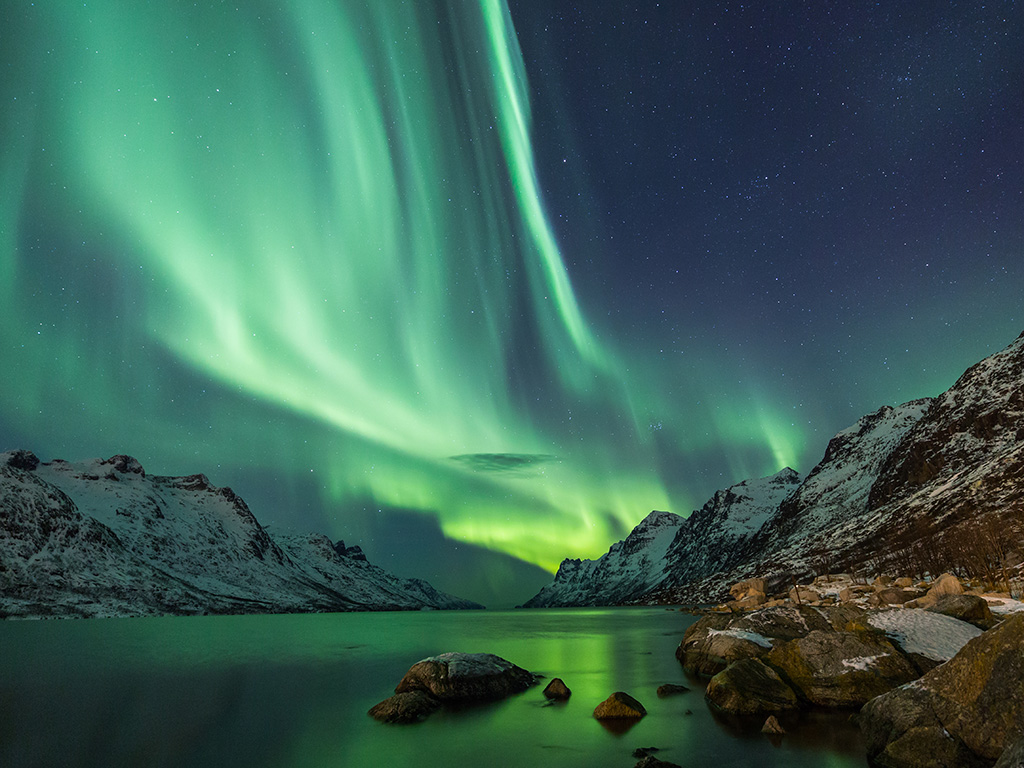
Iceland ranks among the top destinations globally for observing the mesmerizing aurora borealis, or Northern Lights, particularly from September to March.
Its remote location and minimal light pollution offer optimal conditions for witnessing this natural spectacle, attracting visitors worldwide to experience the enchanting dance of colors across the Arctic sky.
Midnight Sun
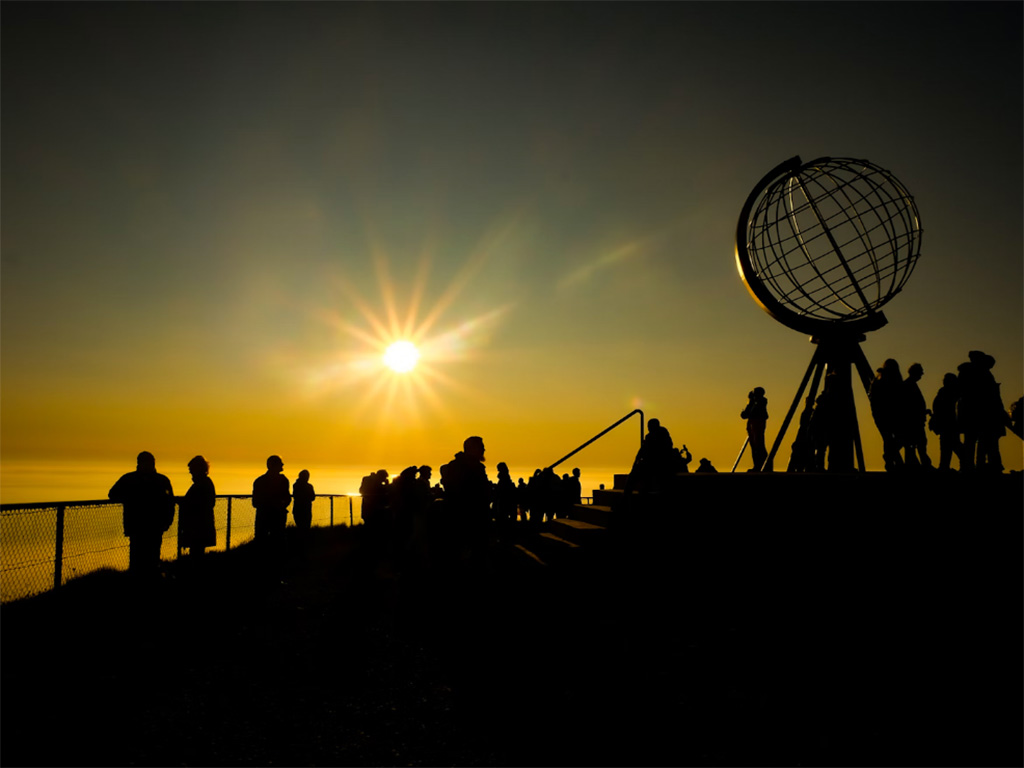
In summer, Iceland enjoys nearly 24 hours of daylight, a phenomenon known as the midnight sun. This unique occurrence bathes the landscape in perpetual sunlight, offering endless opportunities for exploration and outdoor activities. It's a captivating experience that showcases Iceland's enchanting natural beauty in a whole new light.
Clean Energy Leader
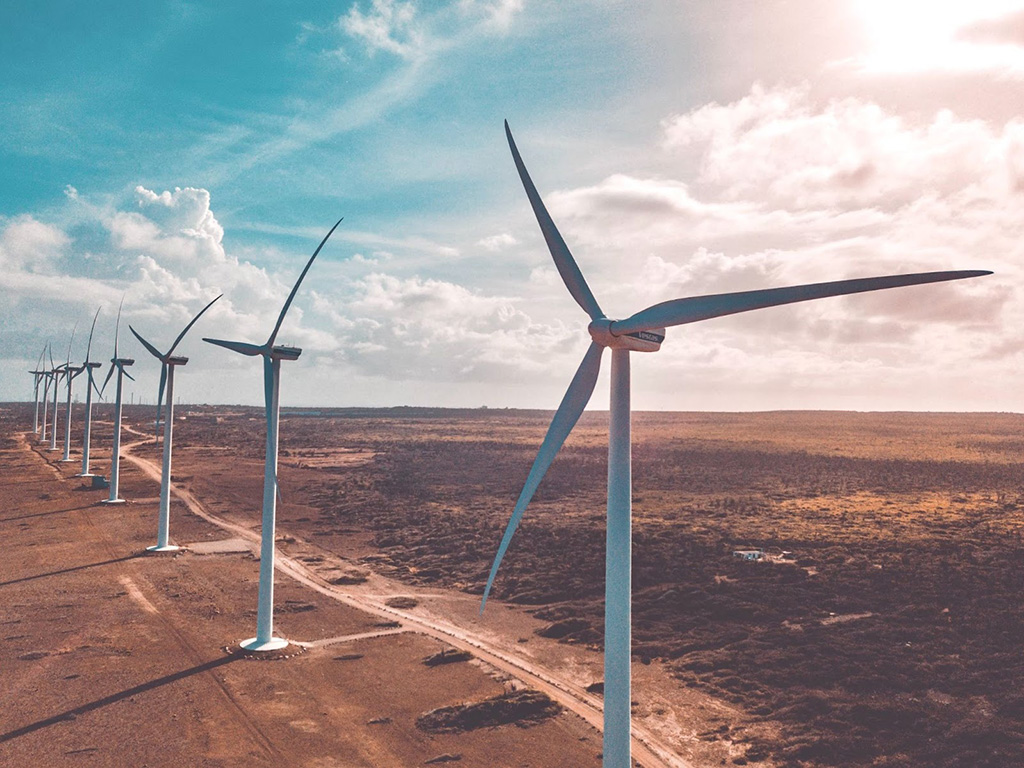
About 85% of Iceland's energy is sourced from renewable sources, with geothermal energy powering approximately 90% of its households. This reliance on sustainable energy highlights Iceland's commitment to environmental stewardship and serves as a model for harnessing natural resources responsibly to meet the needs of its population.
No Forests
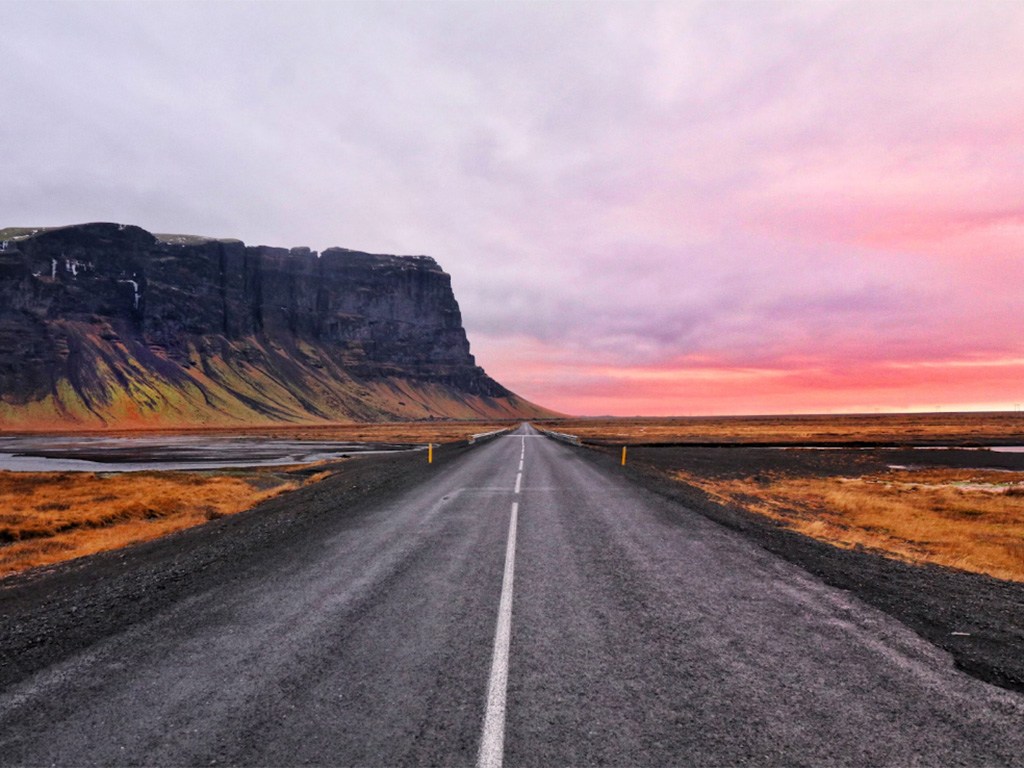
Throughout history, Iceland has been sparse in trees, a characteristic that persists today with limited forests. This scarcity traces back to natural conditions and human activity. Despite efforts to promote reforestation, Iceland's landscape remains predominantly treeless, contributing to its distinctive scenery and ecological composition.
First Parliament

Established in 930 AD, the Althing holds the distinction of being the world's oldest surviving parliament. This ancient Icelandic institution symbolizes the nation's longstanding commitment to democratic governance and serves as a testament to its rich political heritage, making it a significant landmark in the history of global governance.
Dense Population
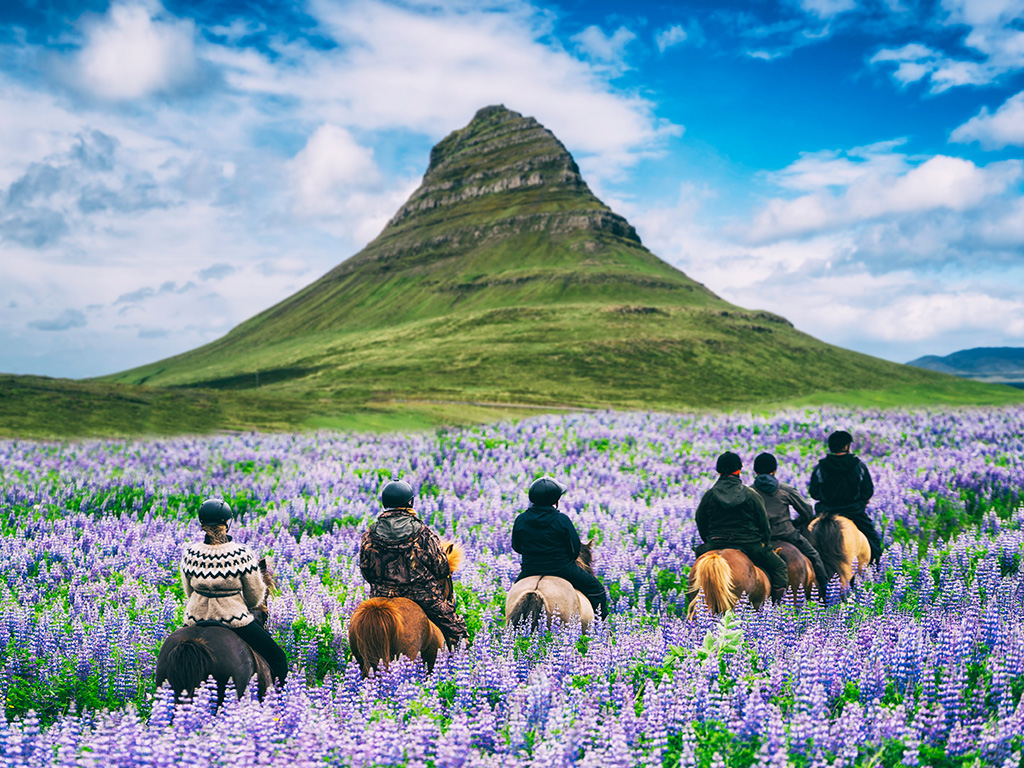
With a population of around 350,000, Iceland stands out as one of the least densely populated countries globally. Its vast landscapes and sparse population density contribute to a sense of openness and tranquility, making Iceland an ideal destination for those seeking solitude amidst breathtaking natural beauty.
Ancient Language
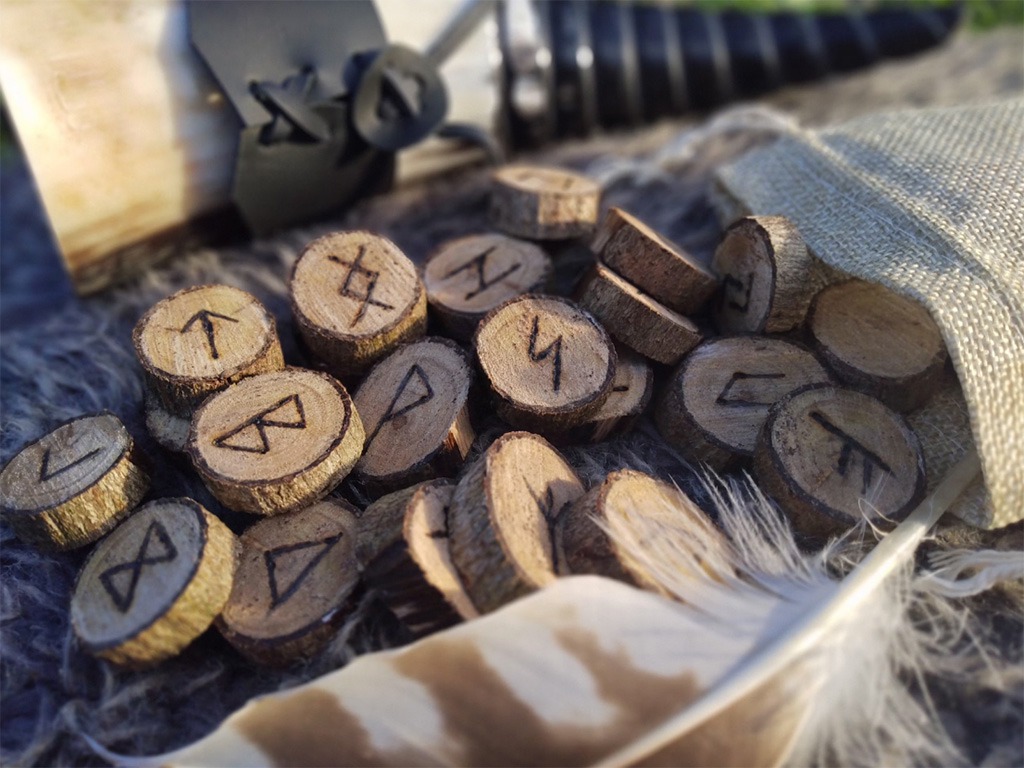
Icelandic has remained remarkably unchanged from ancient Norse, enabling Icelanders to still read classic Norse literature with ease. This linguistic continuity underscores Iceland's cultural heritage and fosters a deep connection to its medieval past, preserving the richness of its literary tradition for generations to come.
No McDonald's

As of my last update, Iceland still lacks any McDonald's restaurants. This unique absence reflects the nation's distinctive culinary landscape and underscores Icelanders' preference for locally sourced and traditional cuisine over fast food chains.
Unique Horses
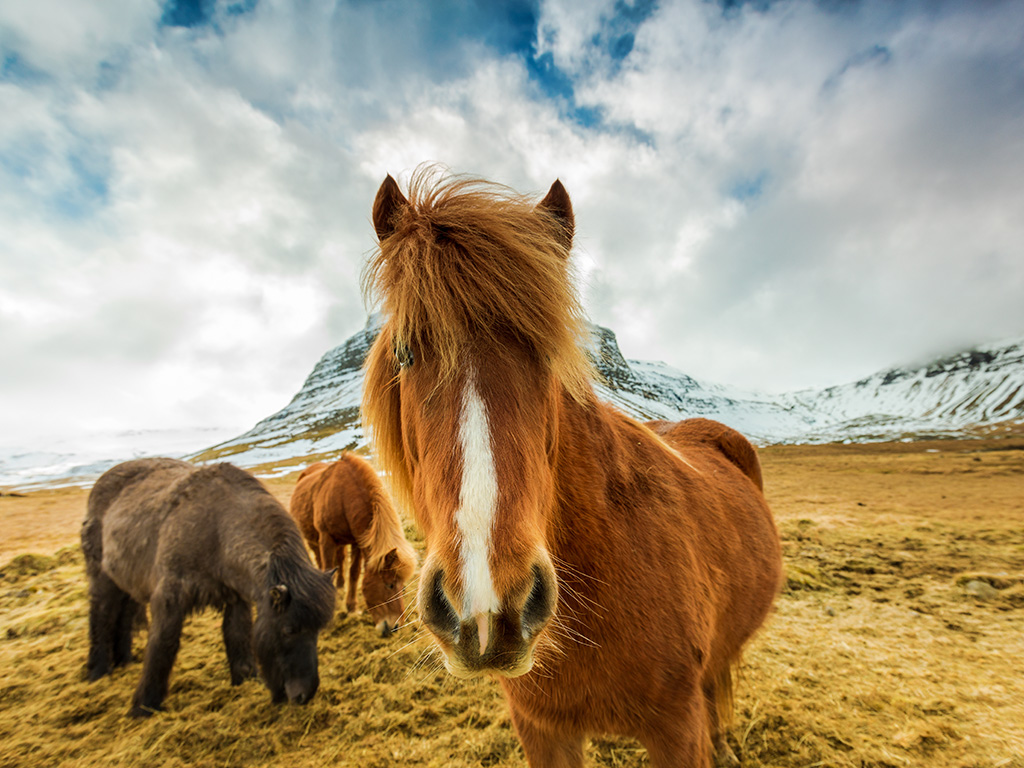
The Icelandic horse, introduced to Iceland by the Vikings over 1,000 years ago, remains virtually unchanged as a breed. This remarkable preservation highlights Iceland's commitment to its cultural heritage and underscores the enduring bond between these majestic animals and the people who have relied on them for centuries.
No Army
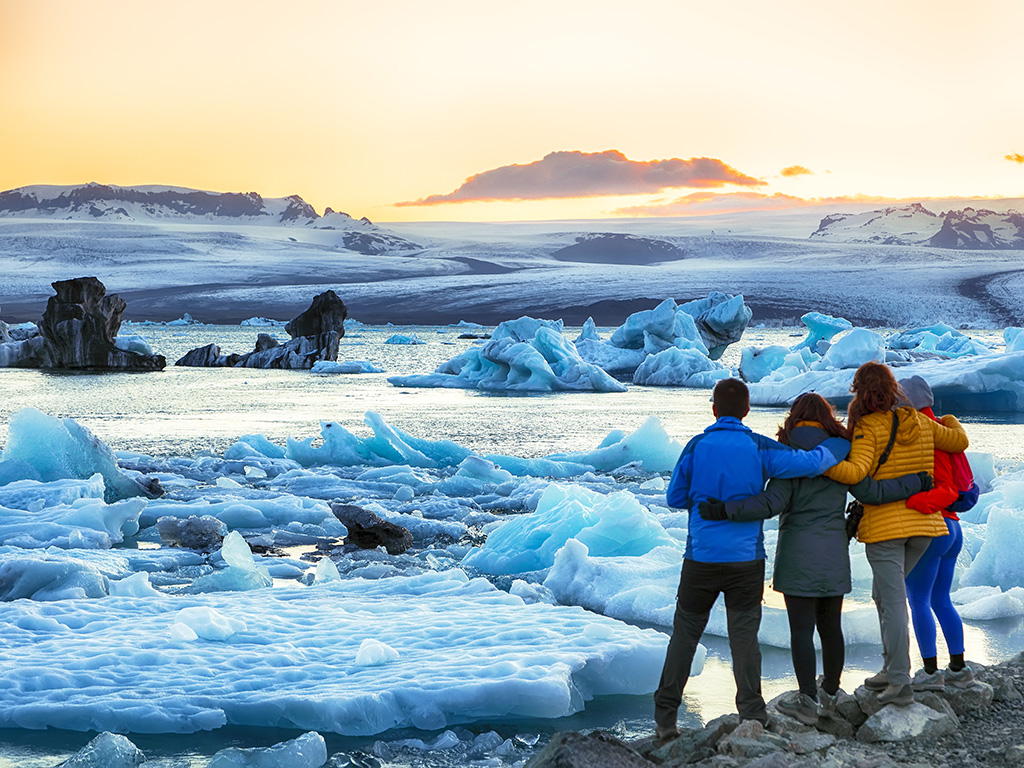
Iceland stands out as one of the few countries globally without a standing army, despite its NATO membership. This unique approach to defense underscores Iceland's commitment to maintaining peace and security through international cooperation and diplomacy rather than military force, reflecting its status as a peaceful and neutral nation.
Waterfalls Galore
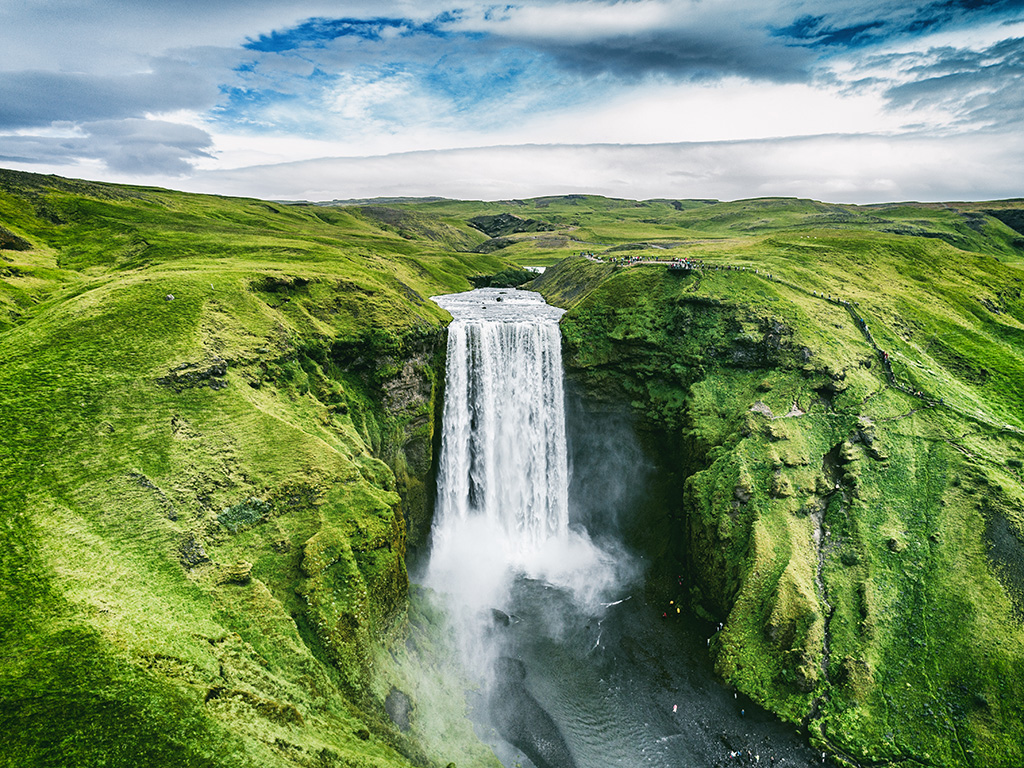
Iceland boasts thousands of waterfalls, among the most renowned are Gullfoss, Skógafoss, and Dettifoss. These majestic cascades exemplify Iceland's breathtaking natural beauty, drawing visitors from around the globe to witness the mesmerizing power and splendor of its stunning landscapes.
The World's Oldest Geysir
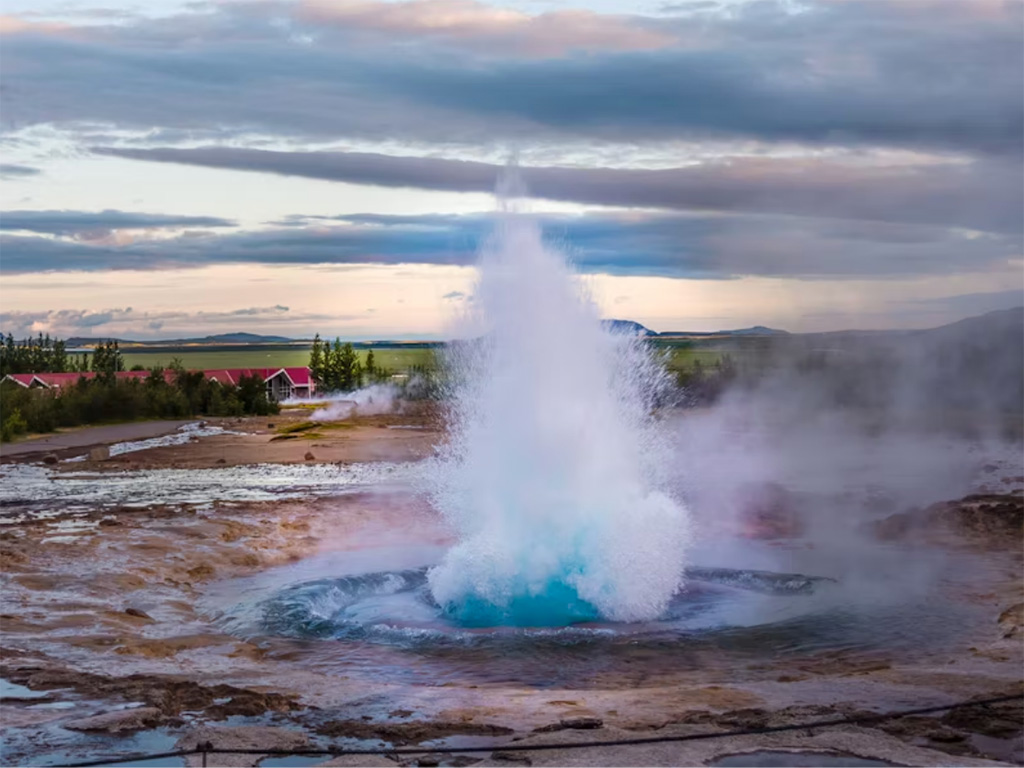
The Great Geysir, one of the world's oldest documented geysers, bestowed its name upon all others of its kind. This iconic natural wonder in Iceland stands as a testament to the country's unique geological heritage and continues to captivate visitors with its awe-inspiring eruptions and ancient mystique.
Green Despite Its Name
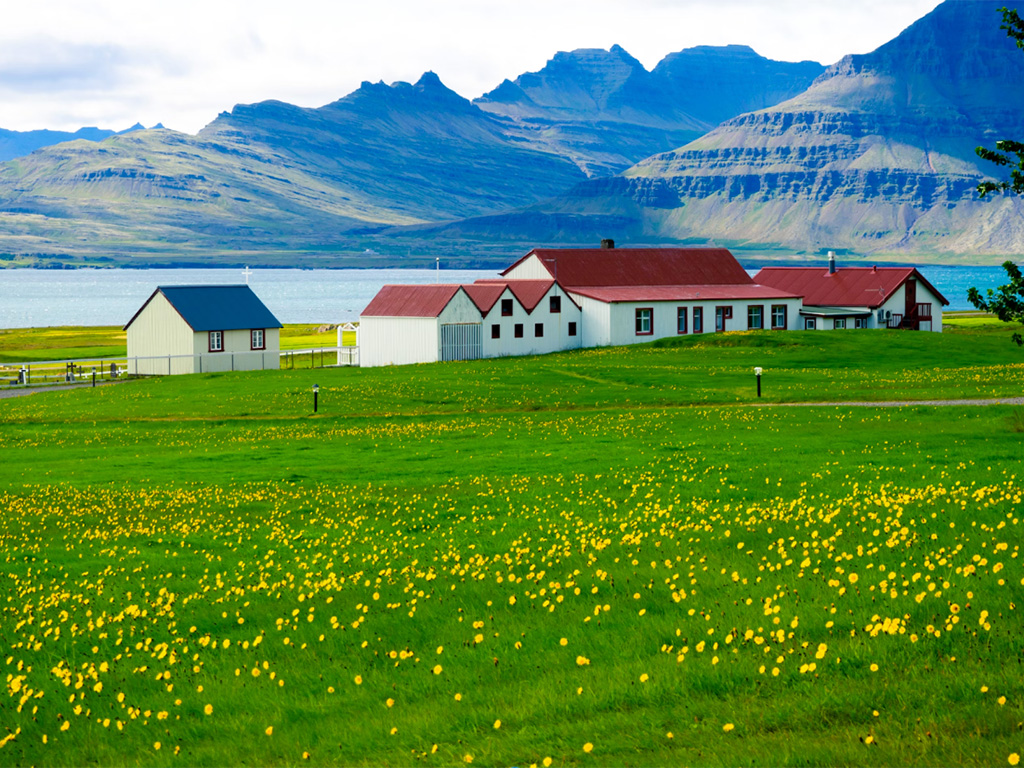
Contrary to its name, Iceland transforms into a green and lush landscape during the summer months, characterized by verdant meadows and vibrant flora. In contrast, Greenland boasts more ice and snow, showcasing Iceland's surprising and diverse natural beauty beyond its icy reputation.
Bridge Between Continents
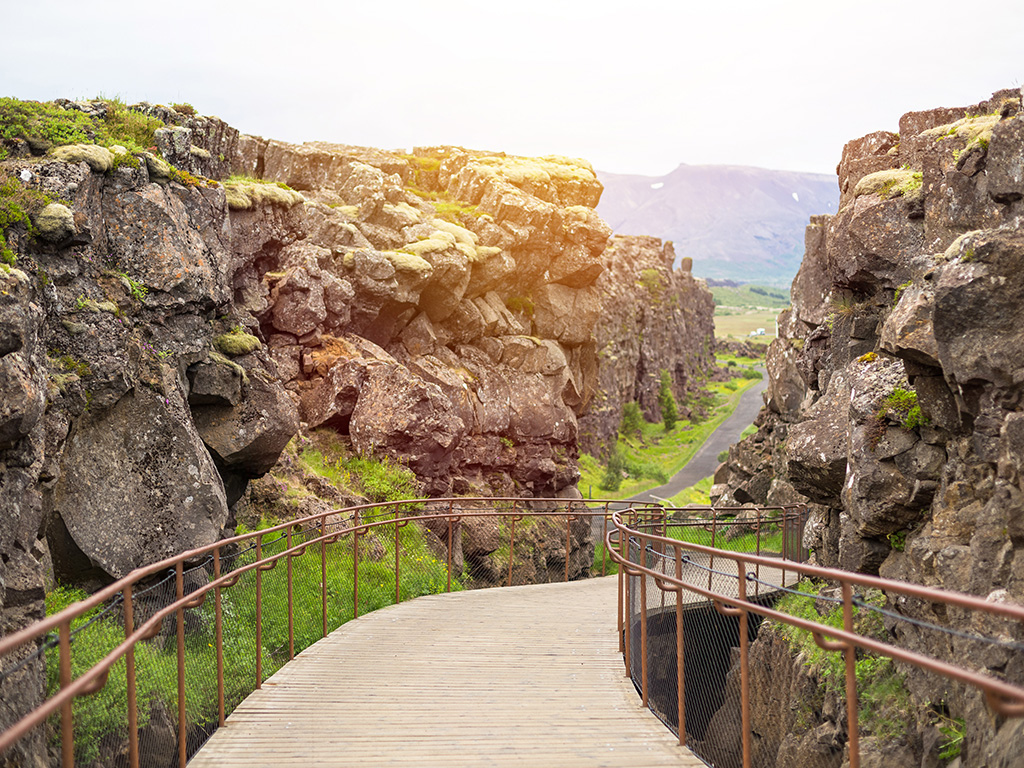
Thingvellir National Park is situated in a rift valley where the North American and Eurasian tectonic plates converge. This unique geological location offers visitors a glimpse into the Earth's dynamic forces, with visible rifts and fissures providing a fascinating insight into Iceland's tectonic activity and geological history.
Eclectic Cuisine
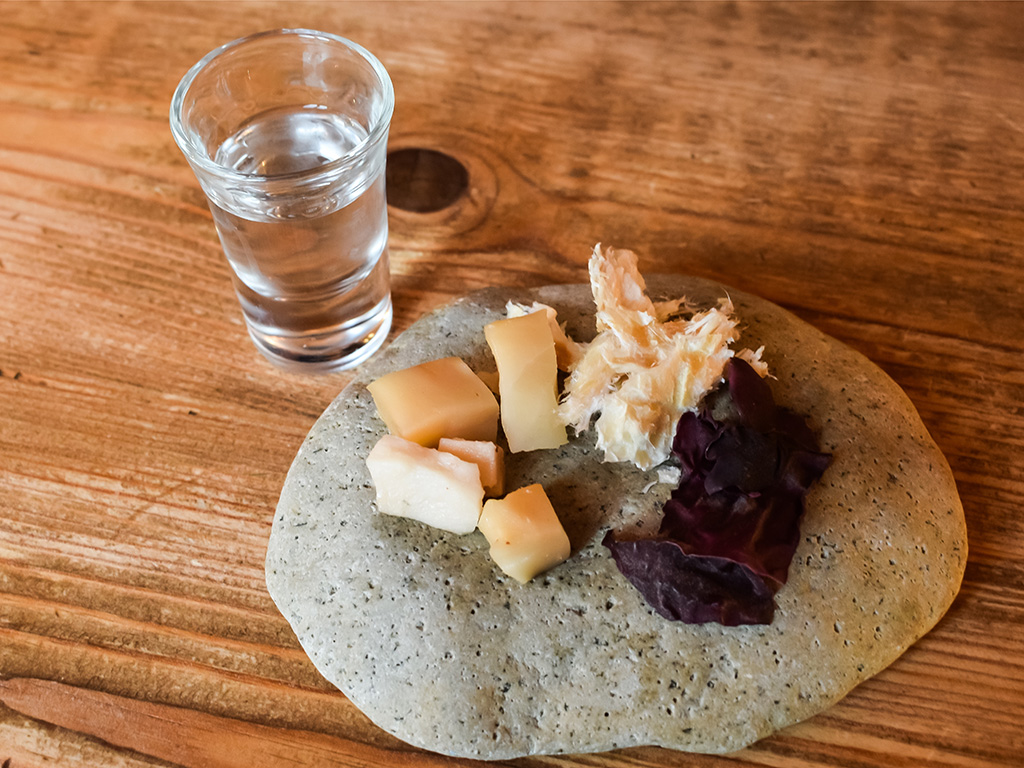
Traditional Icelandic cuisine features unique dishes like Hákarl (fermented shark) and Svið (singed sheep's head). These unconventional delicacies reflect Iceland's culinary heritage, rooted in resourcefulness and the utilization of local ingredients.
While adventurous eaters may find them intriguing, they offer a taste of Iceland's distinctive gastronomic traditions.
Elf Beliefs

Some Icelanders hold beliefs in elves, or "hidden people," and factor them into construction projects and urban planning. This cultural phenomenon reflects Iceland's rich folklore and spiritual connection to the land, influencing decisions to preserve natural habitats and respect the perceived dwelling places of these mythical beings.
No Surnames

In Iceland, instead of surnames, Icelanders utilize a patronymic or matronymic system. This means that individuals are identified by their father's or mother's first name, followed by "son" or "dóttir," respectively.
This unique naming tradition reflects Iceland's cultural heritage and emphasizes familial ties within the community.
Babies Sleep Outside

In most Scandinavian countries, including Iceland, babies are wheeled outside to take a nap outdoors. This tradition, known as "outdoor napping," is believed to have health benefits for babies, including better sleep and increased exposure to fresh air and natural light.
It's a practice deeply rooted in Scandinavian culture and embraced by families across the region.
Björk's Heritage
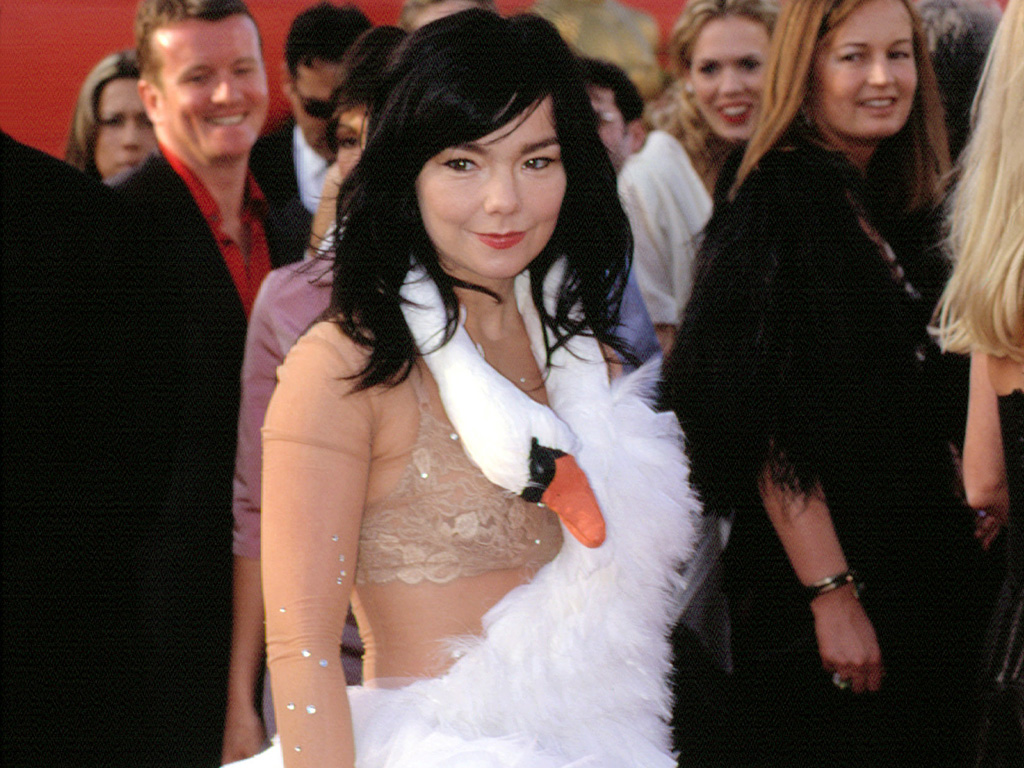
Iceland proudly claims international music icon Björk as one of its own. Renowned for her avant-garde style and innovative music, Björk has garnered widespread acclaim and recognition, showcasing Iceland's rich artistic talent on the global stage and solidifying her status as a cultural ambassador for her homeland.
Ban on Beer
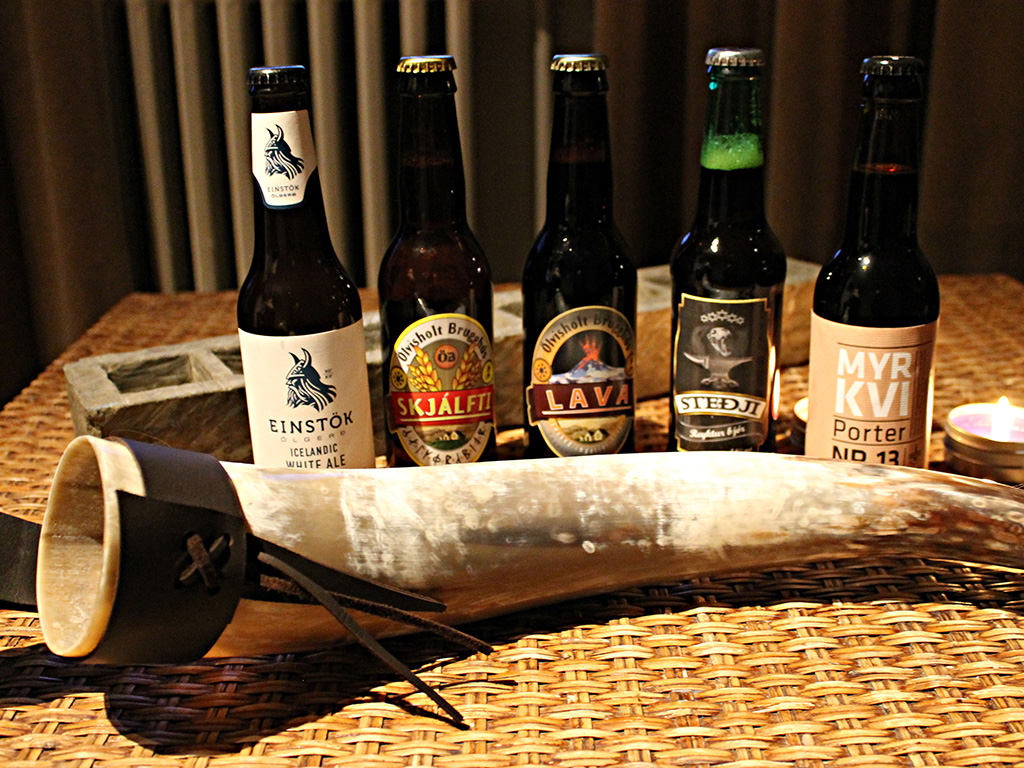
Beer remained banned in Iceland until March 1, 1989, a historic date now celebrated annually as Beer Day. This milestone marked the end of a decades-long prohibition era, sparking nationwide jubilation and establishing a cherished tradition of revelry and appreciation for the beloved beverage in Icelandic culture.
Literary Nation

Iceland holds the distinction of publishing more books per capita than any other country. This remarkable statistic underscores the nation's deep-rooted literary culture and widespread appreciation for storytelling, making books an integral part of Icelandic identity and fostering a vibrant literary scene that continues to thrive both domestically and internationally.
Viking History
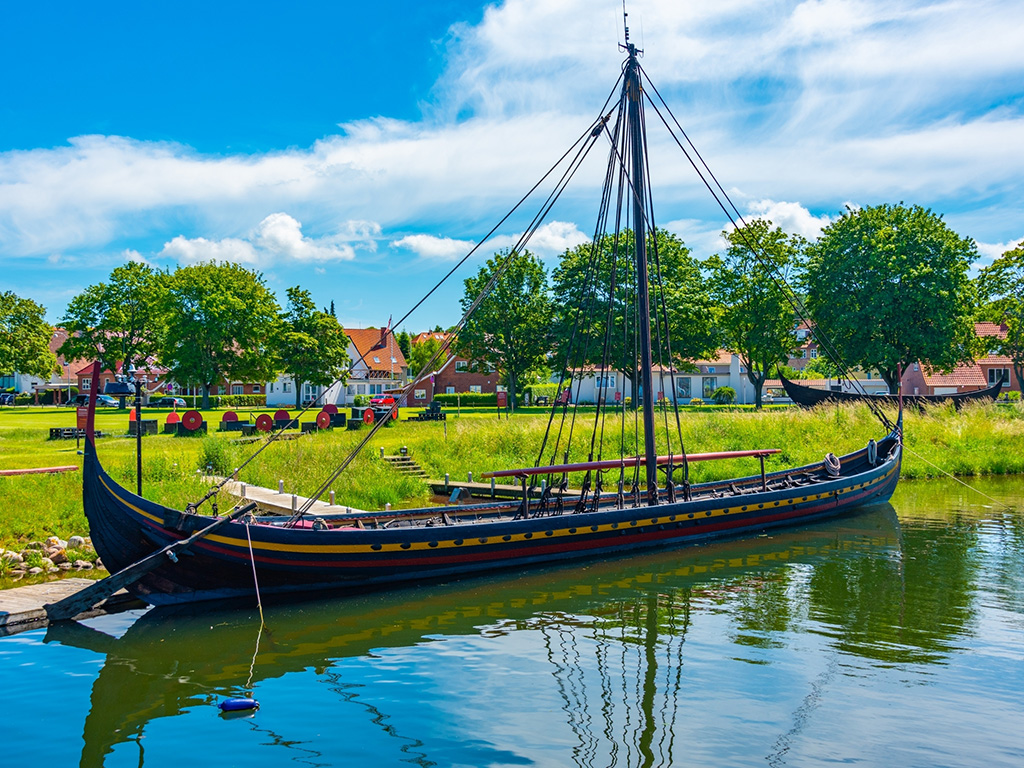
Iceland was settled by Norsemen from Scandinavia and Celts from the British Isles during the 9th and 10th centuries.
This unique blend of Norse and Celtic heritage has shaped Iceland's culture, language, and traditions, creating a rich tapestry of influences that contribute to its distinct national identity.
Reykjavík
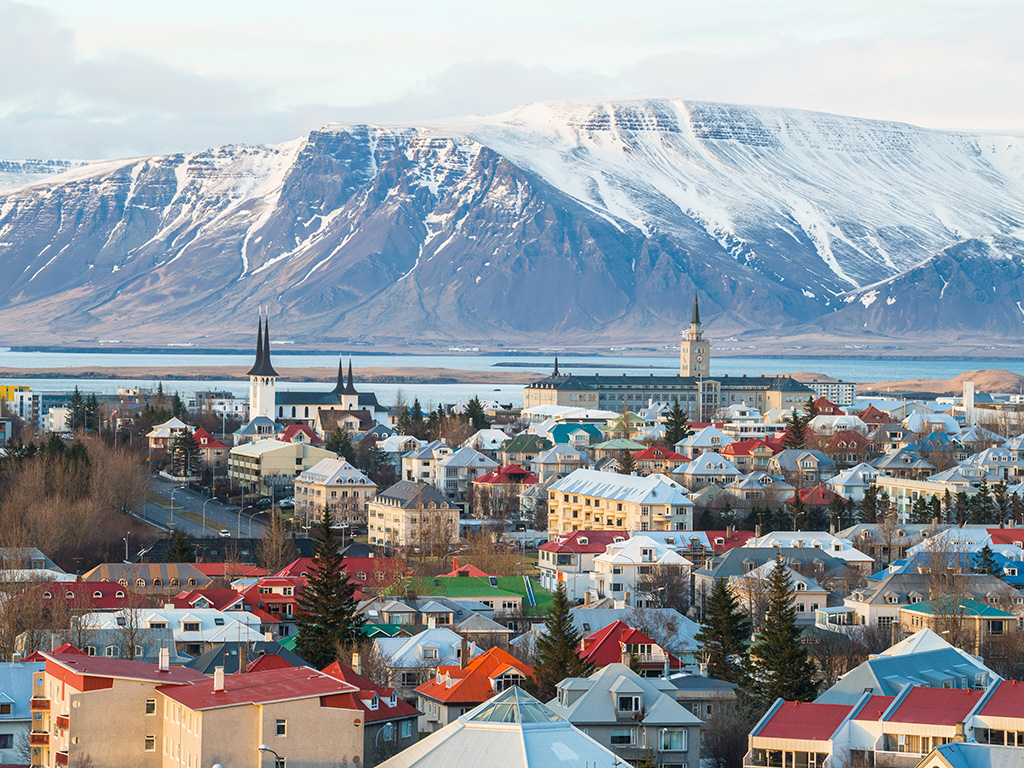
Reykjavík, the capital and largest city of Iceland, holds the distinction of being the northernmost capital of a sovereign state in the world. Situated on the edge of the Arctic Circle, Reykjavík's northern location adds to its allure and uniqueness, attracting visitors from around the globe to experience its vibrant culture and stunning natural landscapes.
A True Blue Lagoon
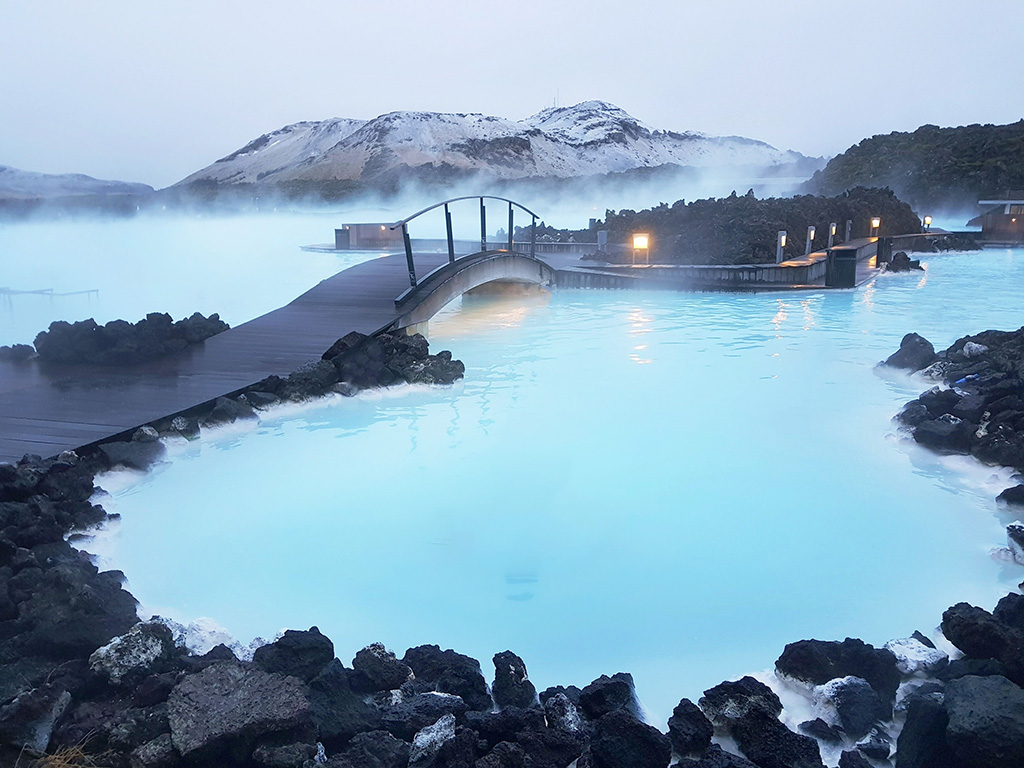
One of Iceland's most visited attractions, the Blue Lagoon, is a geothermal spa nestled within a lava field. This natural wonder offers visitors a unique opportunity to soak in the soothing, mineral-rich waters while surrounded by the striking beauty of Iceland's volcanic landscape, making it a must-see destination for travelers seeking relaxation and rejuvenation.
Renewable Resources
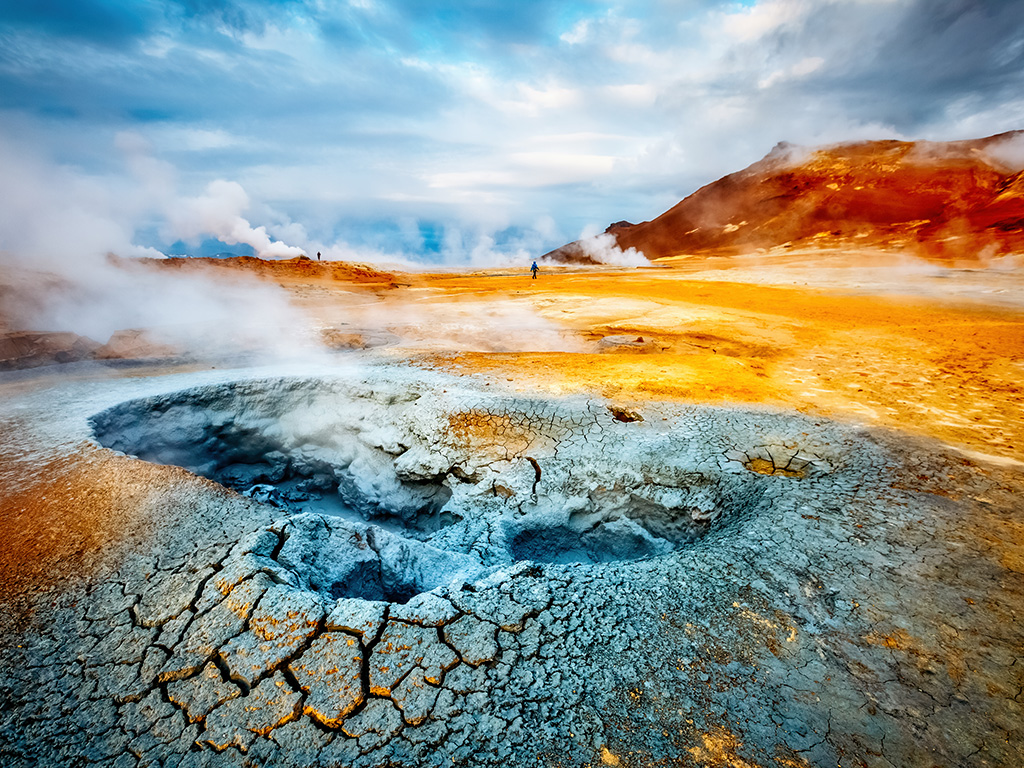
Iceland stands alone as the only country in the world to generate 100% of its electricity from renewable sources, primarily geothermal and hydro power.
This remarkable achievement underscores Iceland's commitment to sustainability and harnessing its abundant natural resources to meet its energy needs while minimizing its carbon footprint, setting a powerful example for global sustainability efforts.
Glacier Adventures
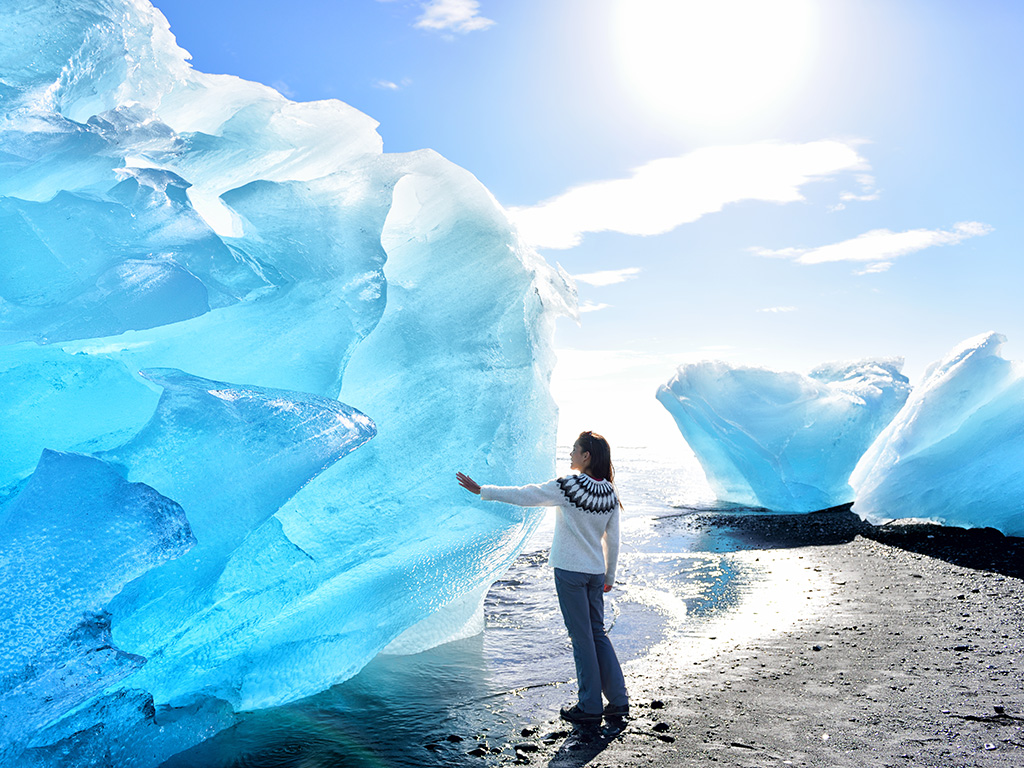
Iceland is home to Vatnajökull, the largest glacier in Europe. Covering a vast area of the country, Vatnajökull's icy expanse captivates visitors with its awe-inspiring beauty and dynamic landscapes.
As a symbol of Iceland's rugged natural beauty, Vatnajökull remains a must-see destination for those exploring the country's diverse and breathtaking terrain.
Unique Wildlife
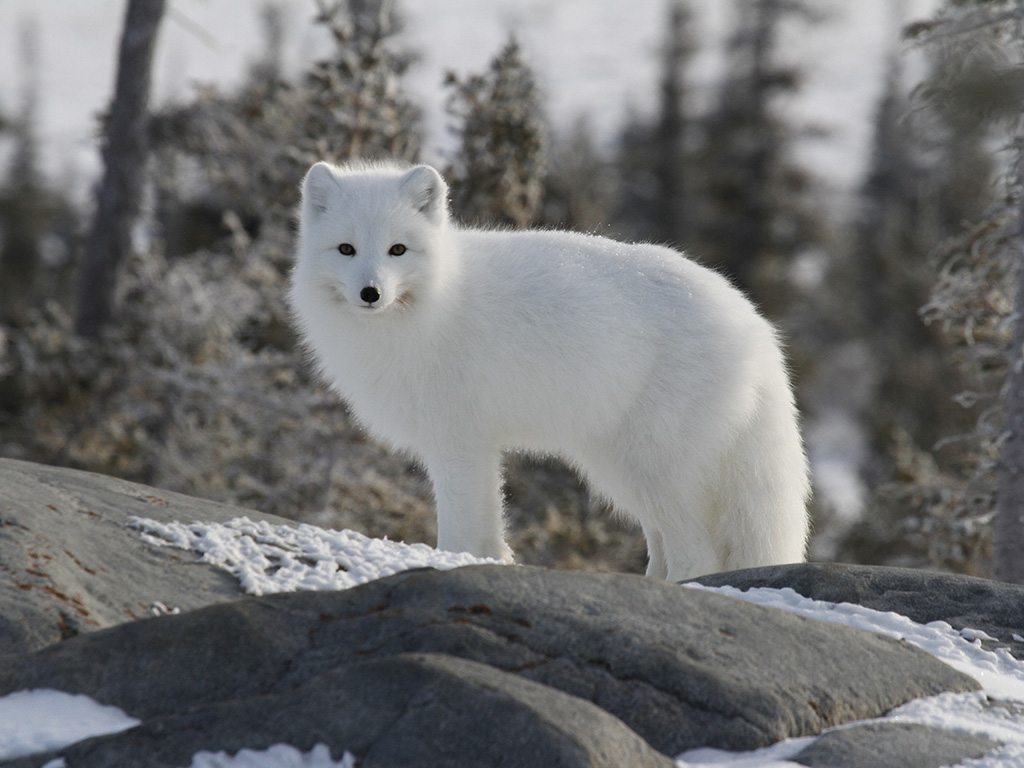
In Iceland, the Arctic fox stands as the sole native terrestrial mammal. This resilient and adaptable creature has evolved to thrive in Iceland's harsh Arctic environment, making it an integral part of the country's delicate ecosystem.
As a symbol of Iceland's unique biodiversity, the Arctic fox holds a special place in the hearts of Icelanders and visitors alike.
Icelandic Sagas

These medieval literary works, written in the 12th and 13th centuries, stand as some of the most significant contributions to world literature.
Reflecting Iceland's rich cultural heritage and storytelling tradition, these timeless pieces continue to captivate readers with their enduring themes, vivid imagery, and profound insights into the human experience.
No Trains, Seriously
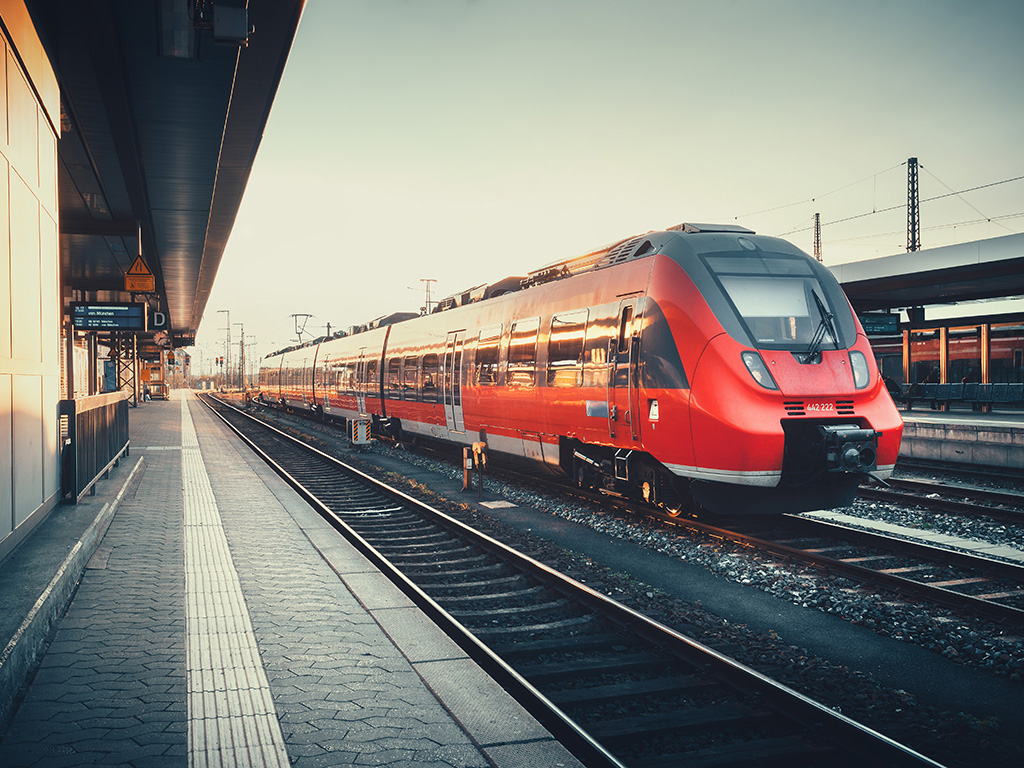
Yeah, it's pretty wild! Unlike almost anywhere else, Iceland doesn't have trains. There's no distant chug of a locomotive or getting stuck at a railway crossing here.
It's just one of those unique quirks that adds to Iceland's charm and makes it unlike anywhere else on Earth.
Chess Wizards Galore

Iceland's got more chess grandmasters per capita than you'd find in a nerdy high school chess club. It's like chess skills are in the water or maybe it's just too cold outside to do anything but play chess. Either way, it's a quirky fact that adds to Iceland's unique charm!
Veggies in a Sauna
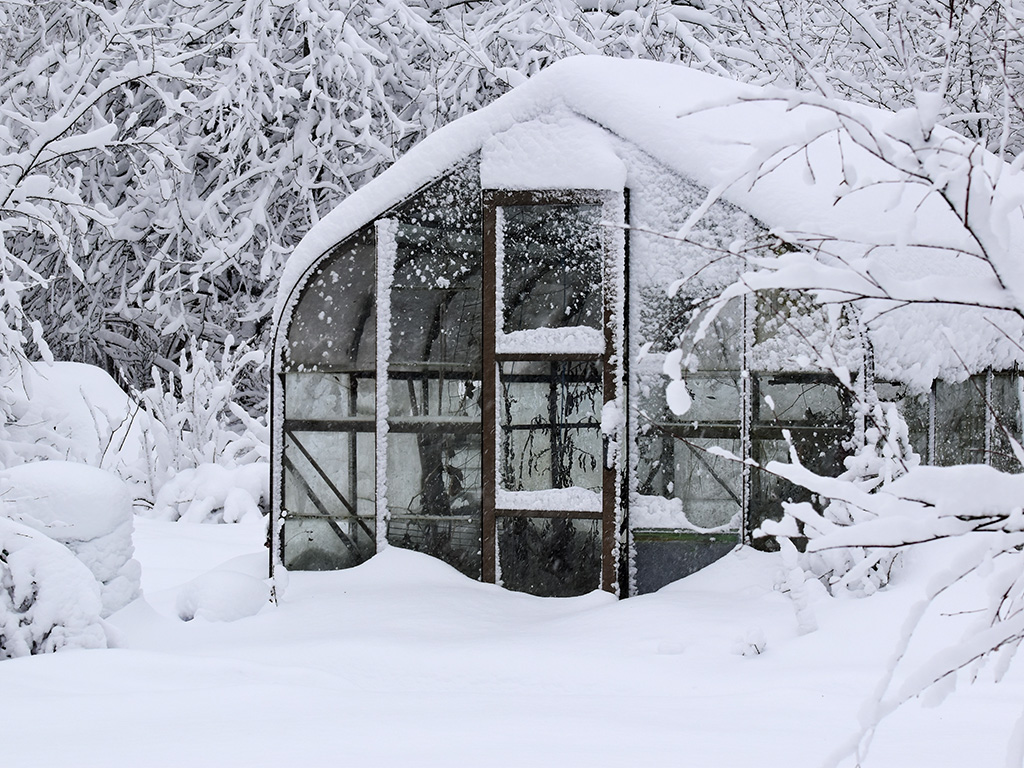
Thanks to their chilly vibe, Icelanders grow a lot of their veggies in cozy, geothermally heated greenhouses. Picture tomatoes basking in the warmth next to a bubbling hot spring.
It's a clever way to harness Iceland's natural resources and ensure fresh produce year-round, adding a touch of warmth to the country's chilly landscape.
Gender Equality
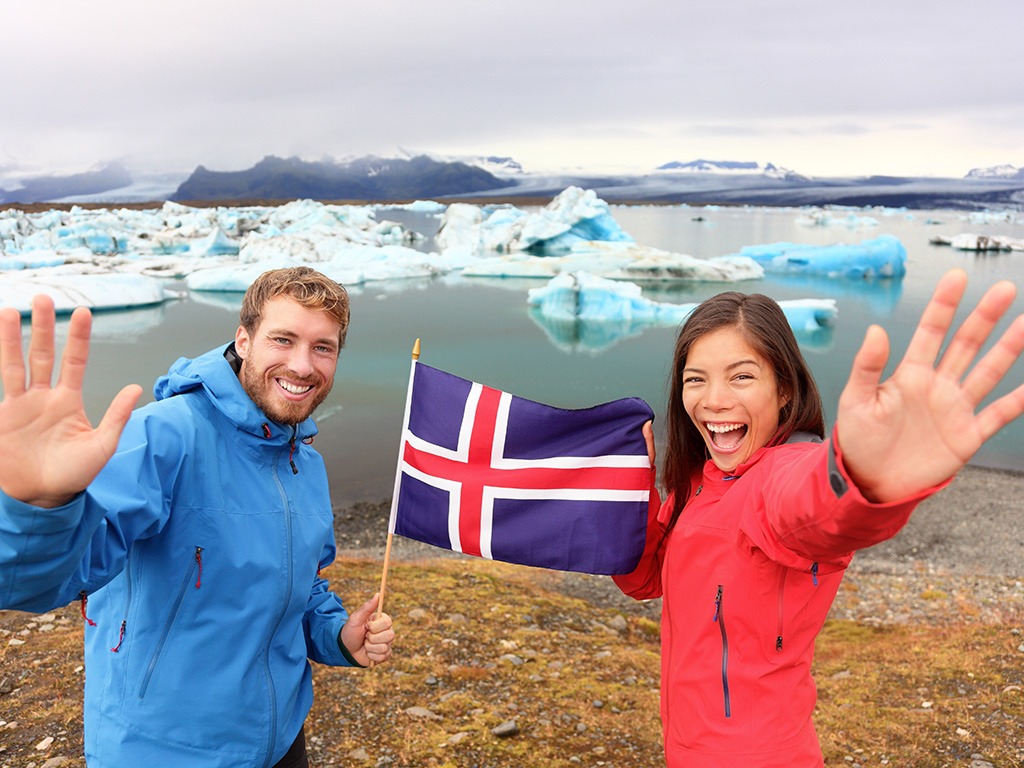
Here's another pleasantly surprising fact from the uncanny valley of Iceland. This one's a real plus for Iceland's tourism — a lot of Icelandic women are business owners.
It's a testament to Iceland's progressive culture and the entrepreneurial spirit of its people, making it an even more appealing destination for travelers seeking diverse and empowering experiences.
Baby Names

In Iceland, baby names are taken very seriously, with strict rules dictating that all names must conform to the Icelandic language and come from the official register of approved names.
This unique approach reflects Iceland's commitment to preserving its language and cultural heritage, ensuring that each name holds special significance within the community.
There's an App to Check Your Relatives

On this little island nation, sparsely populated with under half a million inhabitants, it's understandable that dating someone who's not related can be challenging.
With such a close-knit community, Icelanders often find themselves navigating complex social circles and connections, making it tricky to meet someone outside of familial ties. So there's an app called Íslendinga-App that can check if you're talking with someone you're closely related to!
There's an Elf School
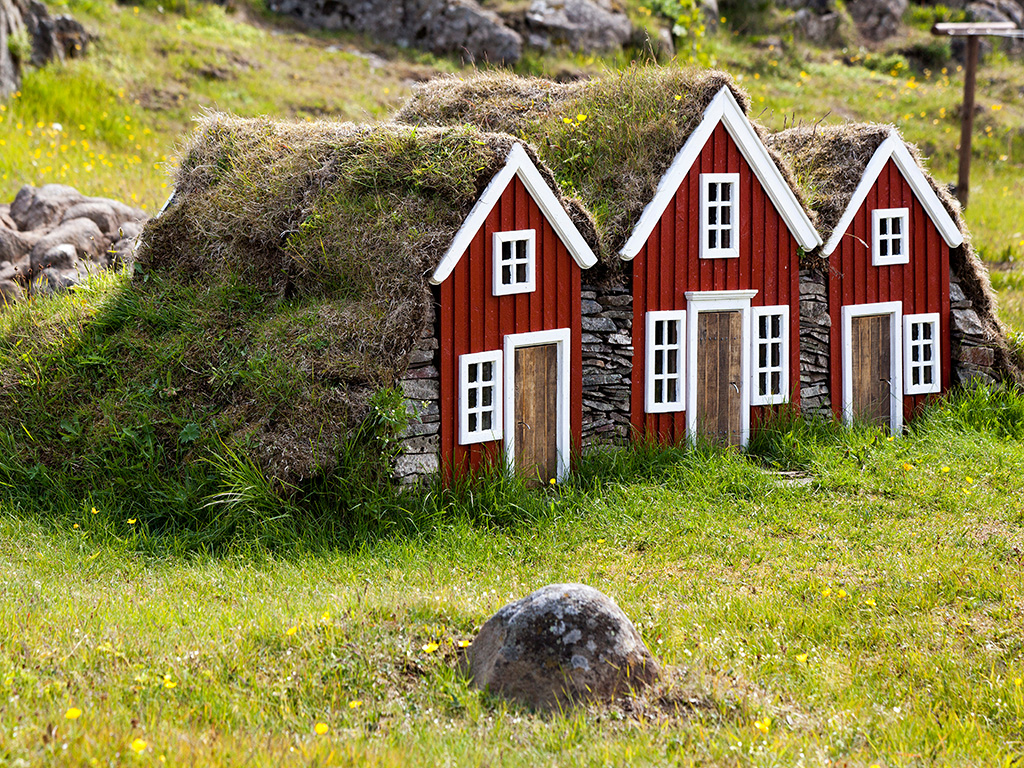
In the thoroughly modern city of Reykjavík, you'll find a quirky Elf school offering lectures and guided tours on Icelandic mythology and folklore.
It's a whimsical nod to Iceland's rich cultural heritage and belief in elves, captivating visitors with enchanting tales and mystical insights into the country's captivating folklore.
Waterfall of the Gods
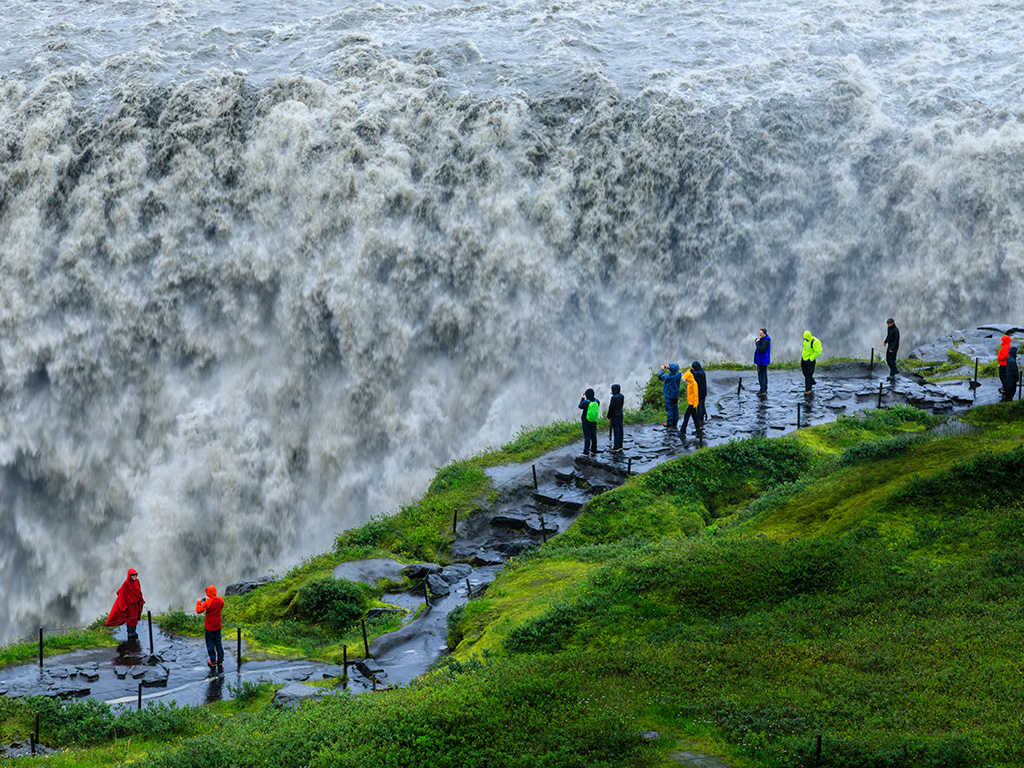
Dettifoss holds the title of Europe's most powerful waterfall. It's as if nature cranked up the water pressure to "stun" and forgot to dial it back down.
The sheer force and majesty of Dettifoss leave visitors awestruck, highlighting the raw power and grandeur of Iceland's natural landscapes.
Epic National Parks
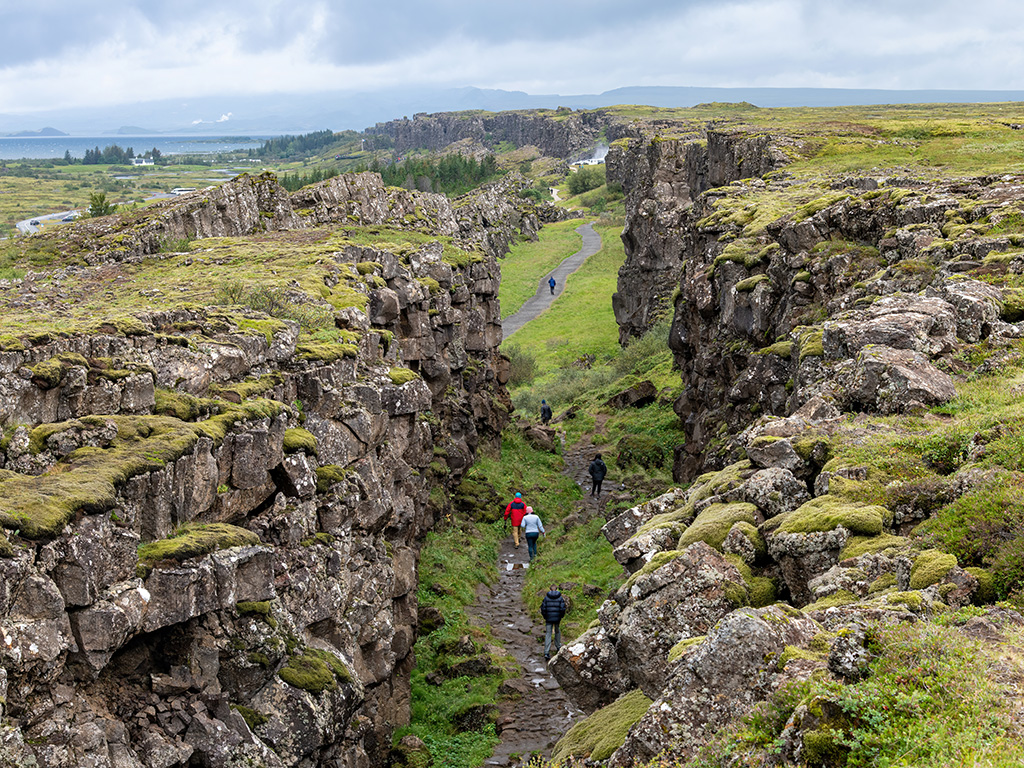
Iceland is packed with national parks, including Þingvellir, where you can literally walk between two tectonic plates. It's like stepping from one world into another, as you traverse the dramatic landscape shaped by the forces of nature over millennia.
It's a breathtaking experience that showcases Iceland's geological wonders up close.
Built Strong
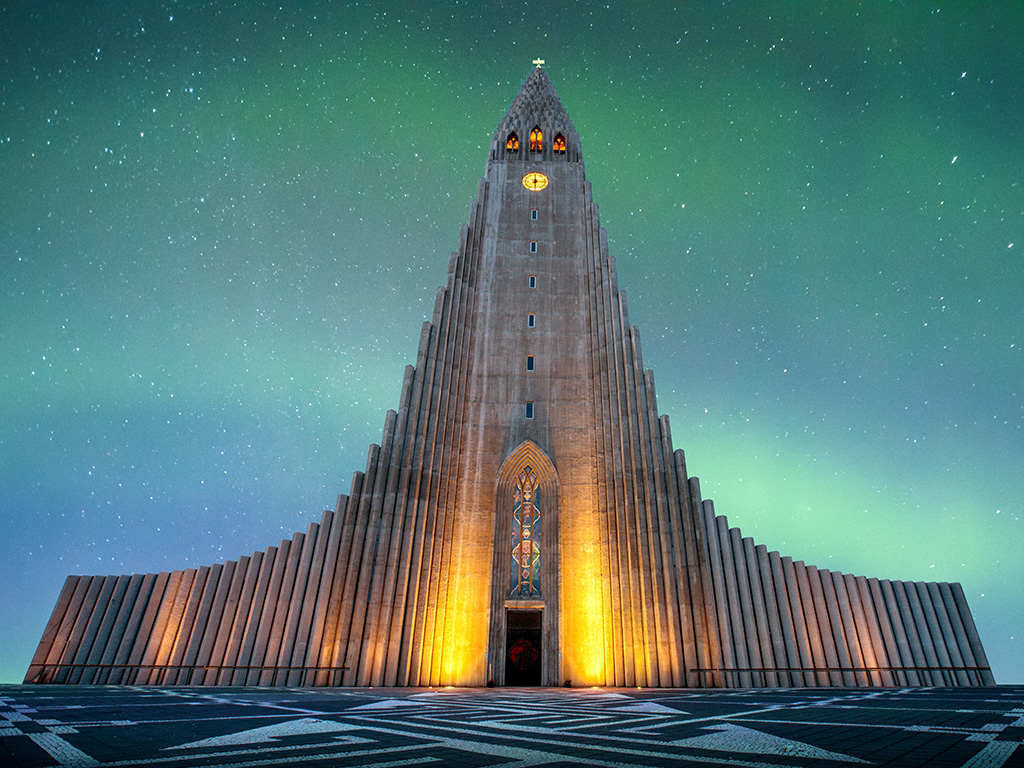
In Iceland, buildings are designed to shake it off—literally. They're built to stand strong against earthquakes and the occasional volcanic tantrum.
It's like the architecture version of "bring it on," where structures are engineered to withstand the powerful forces of nature, ensuring safety and resilience for residents and visitors alike.

